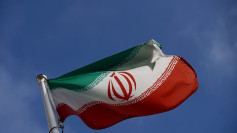According to Senate Energy Committee Chair Sherwin Gatchalian, top foreign affairs and energy officials from Beijing and Manila will soon meet to break the impasse on the controversial joint oil exploration contract in the South China Sea.
During the meeting in Beijing in October 2019, there was an impasse about how to move forward and what laws will regulate the joint exploration, Gatchalian said, citing officials from the Philippine Department of Energy who informed him of the matter.
The same legal deadlock had stalled a planned oil venture deal between Beijing and former President Benigno Aquino III's administration in 2011.
President Rodrigo Duterte's government tried a different course in 2018 by first agreeing to form two fast-track groups: the China-Philippines Inter-Governmental Joint Steering Committee on Oil and Gas Production Cooperation. Beijing's official representative for the second group was the state-owned China National Offshore Oil Corporation.
Gatchalian said a good agreement would send a strong message to the world that given geopolitical issues, "we can find a commercial solution that will favor both countries." He added that China and the Philippines could show that they are "working together for their people."
In a memorandum of understanding signed in 2018, both countries agreed that the proposed joint oil venture agreement would not mean that either side will scrap their South China Sea sovereignty issues, where they have differing claims.
Gatchalian "strongly suggested" that the proposed oil exploration deal suit the service contract agreement between Manila and the Malampaya gas field operator, which sees all oil and gas reserves extracted from the Philippine government.
The field, run by Shell Philippines Exploration, provides 40 percent of Luzon Island's energy needs, where the capital city of Manila and the country's leading business and manufacturing districts are operating.
Gatchalian also said the Energy Committee of the Senate would not need to investigate the agreement if China were to come on board as a service provider through CNOOC. "If the deal is outside of Philippine governing rules, then we will have to look not only at the geopolitical issues, but also at what kind of share the Philippines will get."
Meanwhile, sealing the deal is one of Huang Xilian's main objectives, the new Chinese ambassador to the Philippines. According to a statement from the Chinese embassy, the veteran diplomat on January 3 met with Philippine foreign affairs secretary Teodoro Locsin Jr. to discuss oil and gas development and major infrastructure projects.






